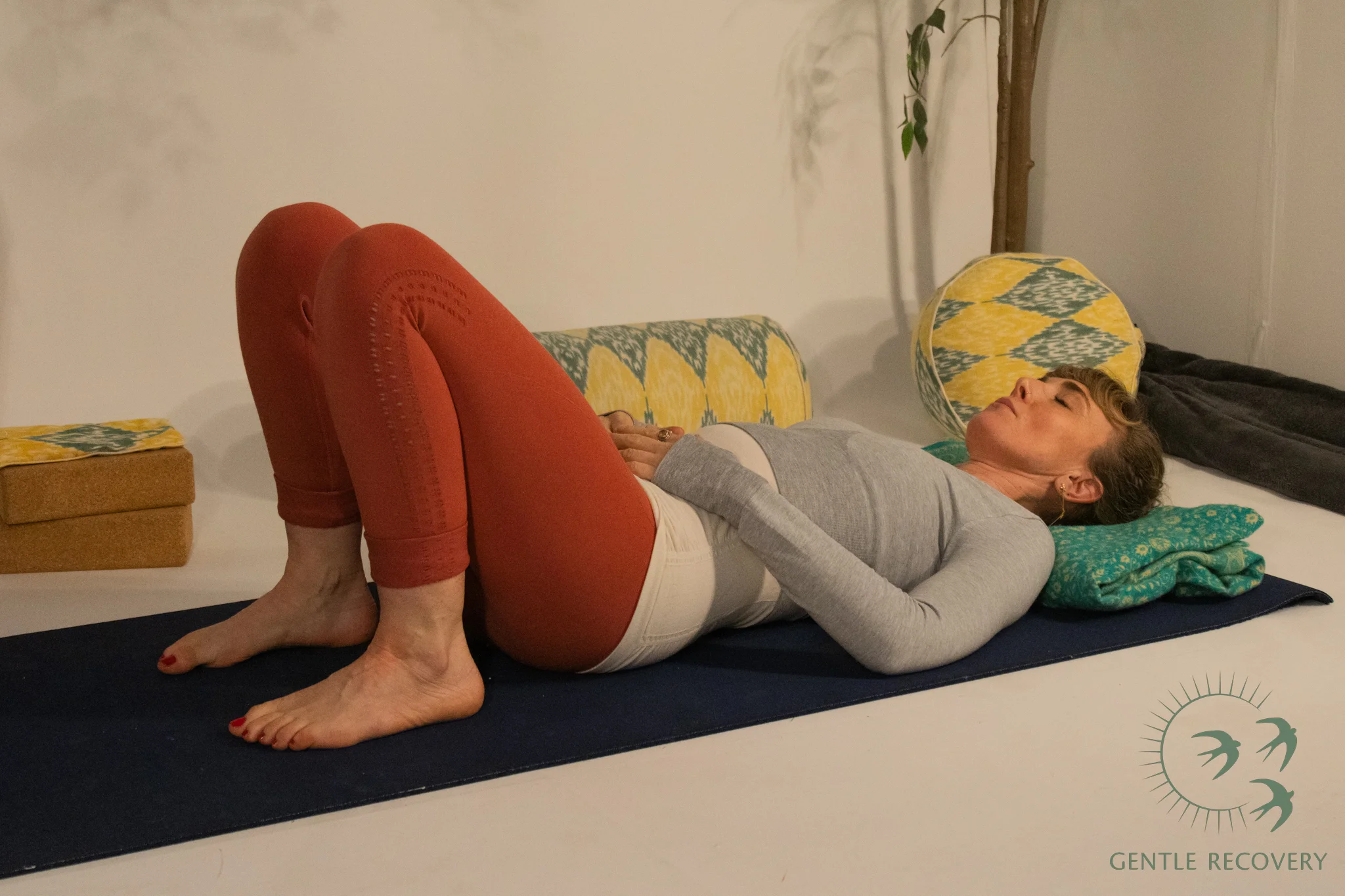
Strong Back, Soft Front: The Power of Yoga in Breast Cancer Recovery
Recovery from breast cancer is a journey that touches every part of our being—body, mind, and spirit. It challenges us to meet fear, uncertainty, and grief with resilience and grace. And yet, one of the most profound gifts we can offer ourselves in this time is not just physical healing, but the cultivation of inner qualities that help us stay grounded, open, and compassionate through it all.
One way to begin this inner cultivation is through yoga. Gentle yoga offers more than movement—it becomes a sanctuary where we can reconnect with ourselves, slow down, and create space for emotional healing. It invites us to soften around our experience while rebuilding strength. And perhaps most importantly, it gives us the tools to embody what Buddhist teacher Roshi Joan Halifax calls a “strong back and soft front.”
What Does It Mean to Have a Strong Back and Soft Front?
Sit for a moment and let that phrase land in your body. Strong back. Soft front.
To me, a strong back speaks to inner strength—to stability, resolve, and the capacity to stand tall in the face of difficulty. It’s about having a “backbone,” the courage to set boundaries, the strength to say no, the ability to remain upright when the ground feels shaky.
A soft front, on the other hand, is about vulnerability and openness. It means letting our hearts remain open—to others, to our own experience, even when it’s painful. It’s the part of us that’s tender, receptive, compassionate.
Roshi Joan Halifax says that this balance is about “the relationship between equanimity and compassion.” When we cultivate both qualities within ourselves, we can face life with strength, wisdom, grace—and love.
The Role of Yoga
During breast cancer recovery, the body can feel foreign, wounded, or fragile. Gentle yoga allows us to re-inhabit our bodies with kindness and curiosity. Movements are slow and intentional. Breath becomes a guide. We start to trust ourselves again.
In this practice, we are literally building a strong back—reclaiming core strength and health posture and movement one breath, one pose at a time. Simultaneously, we learn to approach ourselves with gentleness, offering compassion for everything we’ve been through. This is the soft front—the willingness to meet our pain, grief, and fear without shutting down or hardening.
Healthy Boundaries as Compassion
Psychologist Brené Brown, known for her work on vulnerability and shame, found something surprising in her research: the most compassionate people are also the most boundaried. Without boundaries, compassion tends to erode. We burn out. We close off. When recovering from cancer and its treatments learning healthy boundaries is more important than ever, learning to say ‘no’ when we need to rest, take space and practice self-care is essential. Learning to put on one’s own oxygen mask first.
Similarly this is echoed by Kristin Neff’s concept of fierce self-compassion which reminds us that being kind to ourselves sometimes means standing up for ourselves.
These teachings resonate deeply in the context of recovery. They remind us that compassion isn’t about passivity—it’s about wise, balanced action. It’s not either/or—it’s both. Gentle and strong. Receptive and resilient.
When the Front is Hard and the Back is Weak
During tough times, we often have a weak back—we collapse, withdraw, or lose our sense of agency. To protect ourselves, we form a hard front, shielding our hearts from further pain.
But this armour disconnects us—from others, from life, from our own emotional truth. We may feel safe, but we’re also cut off from the nourishment of connection and the transformative power of vulnerability.
Yoga helps reverse this. We build internal strength while softening the defenses that no longer serve us. We begin to trust that we can be open and protected. Vulnerable and strong.
The Invitation
The invitation of a strong back and soft front is simple but radical: stay grounded and open at the same time.
As we practice this on the mat and in life, we become more resilient, more compassionate, and more whole. We learn to hold ourselves and others with tenderness and clarity.
Breast cancer recovery is not just about surviving. It’s about rediscovering ourselves in the process—stronger, softer, and more deeply rooted in love.
I wonder if you could take a moment now to stand in mountain pose (standing on your mat or floor, arms by your sides palms facing forwards), to feel your feet connected to the ground hip distance apart, knees soft, feel your spine lengthen, your shoulders gentle draw back and down. Standing here embodying that sense of a mountain yet can you bring your hands to your belly and breathe softly in to your hands, can you lift the corners of your mouth bringing a gentle smile on to your face.
How does this feel? Maybe take some time to journal your experience.
If you would like more support in your recovery after breast cancer surgery please do reach out at my**************@***il.com, I would be happy to arrange a free introductory call.